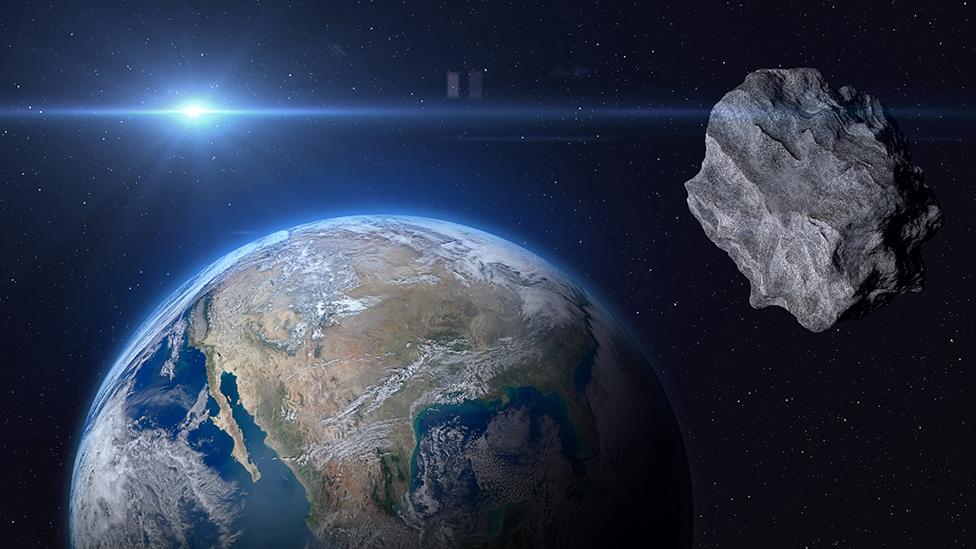Meteoroid lights up sky above English Channel
- Published
WATCH: Asteroid soars above English Channel
A small meteoroid has entered the Earth's atmosphere and was seen lighting up the sky above the English Channel, creating a stunning shooting star effect.
The 1m (3ft) meteoroid was seen shortly before 03:00 GMT on Monday morning.
Social media users, some based in the south of England, shared footage of the rock which has been dubbed Sar2667.
It is just the seventh time an asteroid impact has been predicted in advance.
The European Space Agency tweeted that it was "a sign of the rapid advancements in global asteroid detection capabilities!"
A person who says they witnessed the event wrote on Twitter, external that the asteroid "lit up the sky with a pink flash which was spectacular."
Another said: "I just stood at my window and turned on my phone. I wasn't expecting much but it really was amazing."
Allow X content?
This article contains content provided by X. We ask for your permission before anything is loaded, as they may be using cookies and other technologies. You may want to read X’s cookie policy, external and privacy policy, external before accepting. To view this content choose ‘accept and continue’.
The agency earlier said the object was expected to "safely strike" the earth's atmosphere near to the French city of Rouen.
The International Meteor Organization, a Belgium-based non-profit organisation, said the object would have entered about 4km (2.5 miles) from the French coast, and would create a "fireball" effect.
Allow X content?
This article contains content provided by X. We ask for your permission before anything is loaded, as they may be using cookies and other technologies. You may want to read X’s cookie policy, external and privacy policy, external before accepting. To view this content choose ‘accept and continue’.
Asteroids are small rocky objects that orbit the sun, often described as minor planets.
A meteor is what happens when a small piece of an asteroid or comet, called a meteoroid, burns up upon entering Earth's atmosphere.
Authorities are aware of more than 1.1 million asteroids, although the true number is believed to be much higher.
Around 30,600 travel in an orbit that brings them near Earth's own, according to the European Space Agency.
The last asteroid predicted to enter the Earth's atmosphere in advance was seen in the sky above Ontario, Canada in November last year.
In January, an asteroid the size of a minibus had been on a direct collision course with earth.
In reality, the rock would likely have disintegrated high in the atmosphere before impact.
Asteroid detection experts are most concerned about "goldilocks asteroids", external, much larger space rocks that could do serious damage to earth if they impact.
In October, the American space agency NASA announced its experiment to deflect the path of an asteroid had been successful.
Related topics
- Published27 January 2023

- Published26 September 2022